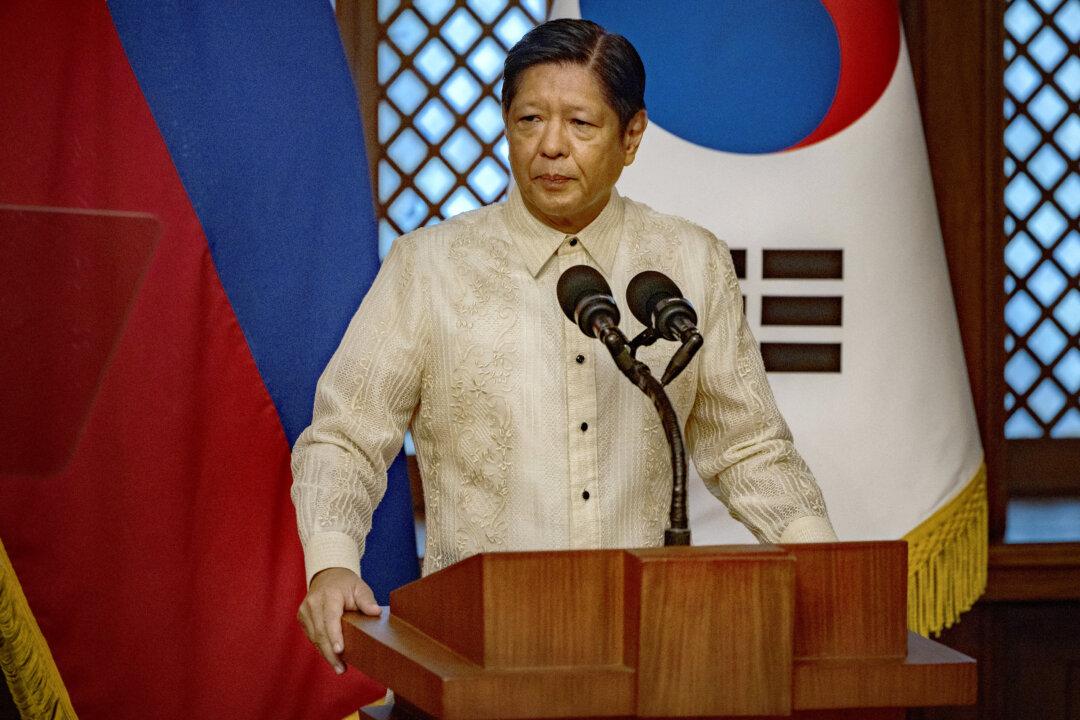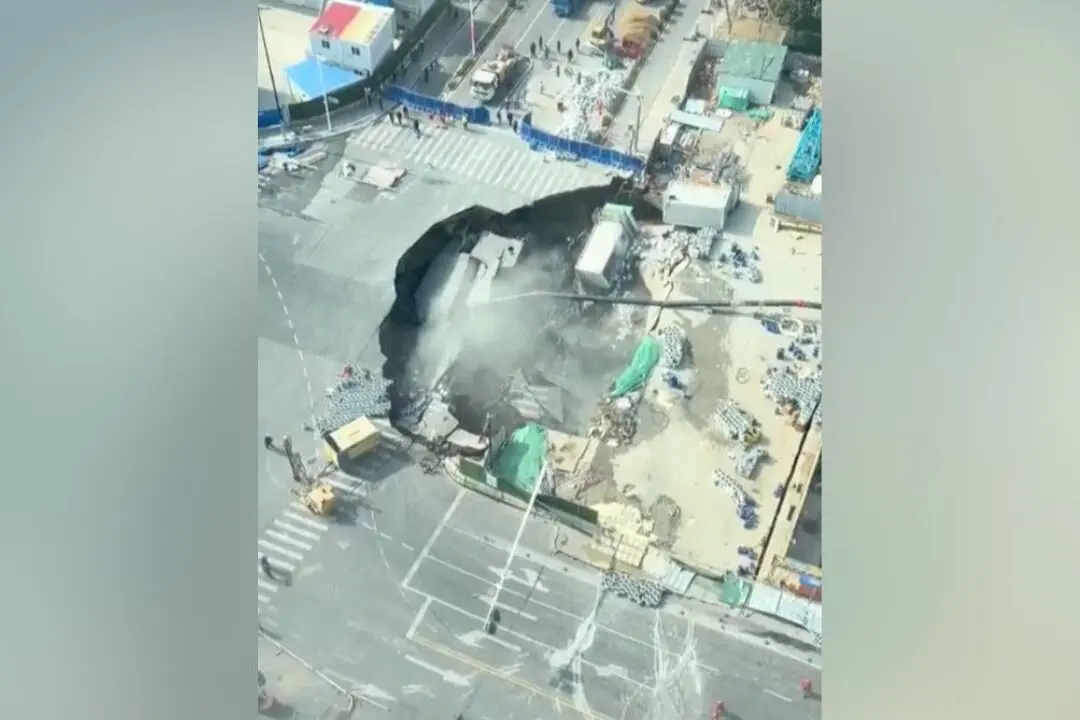Philippine President Ferdinand Marcos Jr. on Oct. 10 called for a reduction in tensions in the South China Sea and condemned China for harassment and intimidation during a summit with Southeast Asian leaders and the Chinese communist regime’s premier, Li Qiang.
The regional summit in Laos follows a series of tense aerial confrontations and clashes in the South China Sea between Beijing and Manila. In August, there were three confrontations near the disputed Sabina Shoal, also known as Xianbin in Beijing and Escoda in Manila. This atoll, situated about 75 nautical miles west of the island province of Palawan in the Philippines, is within the exclusive economic zone of the Philippines, according to international law.




